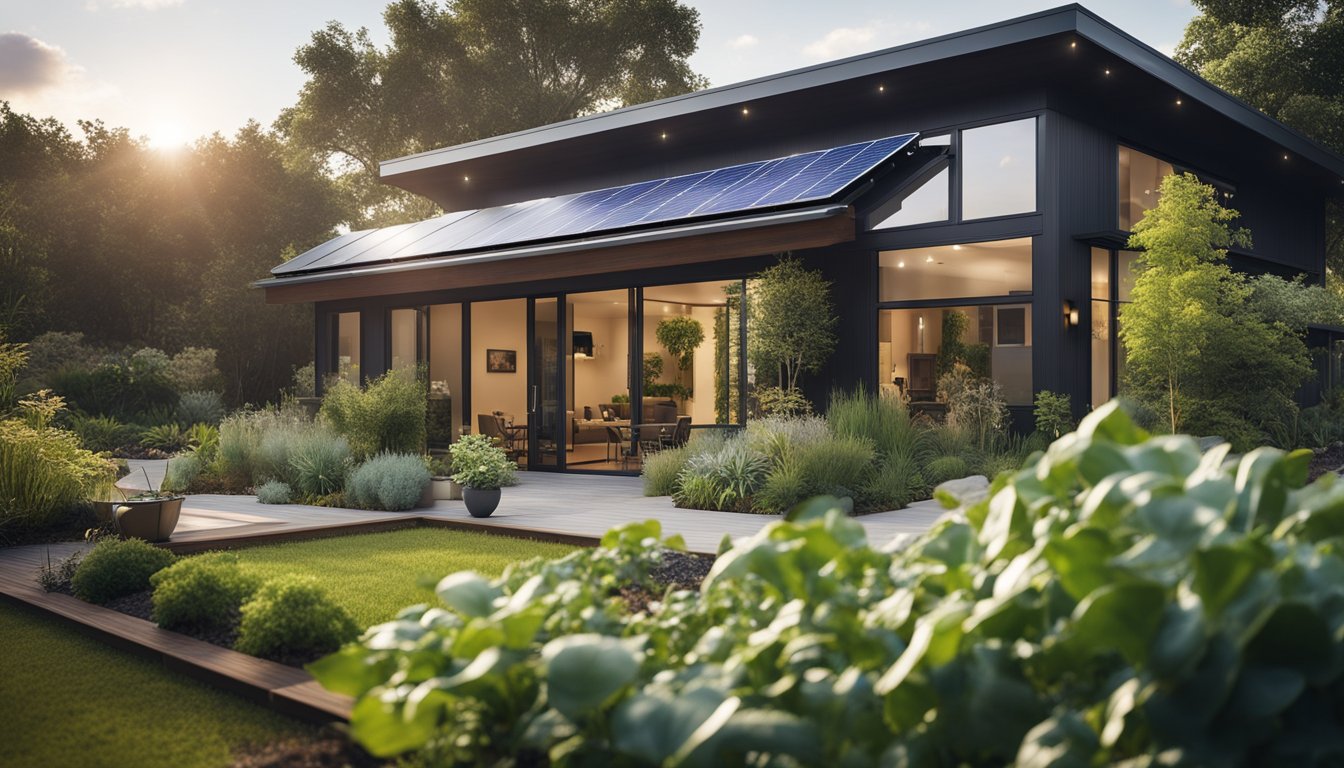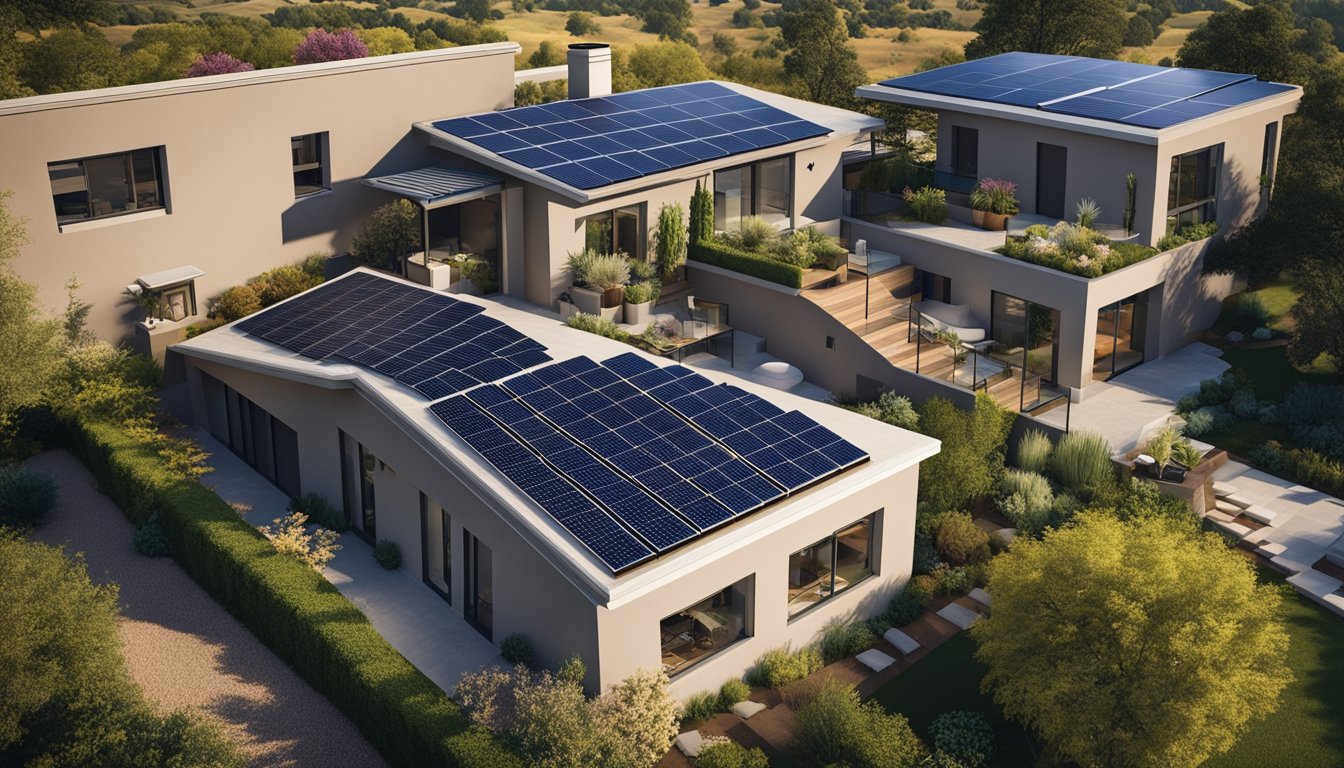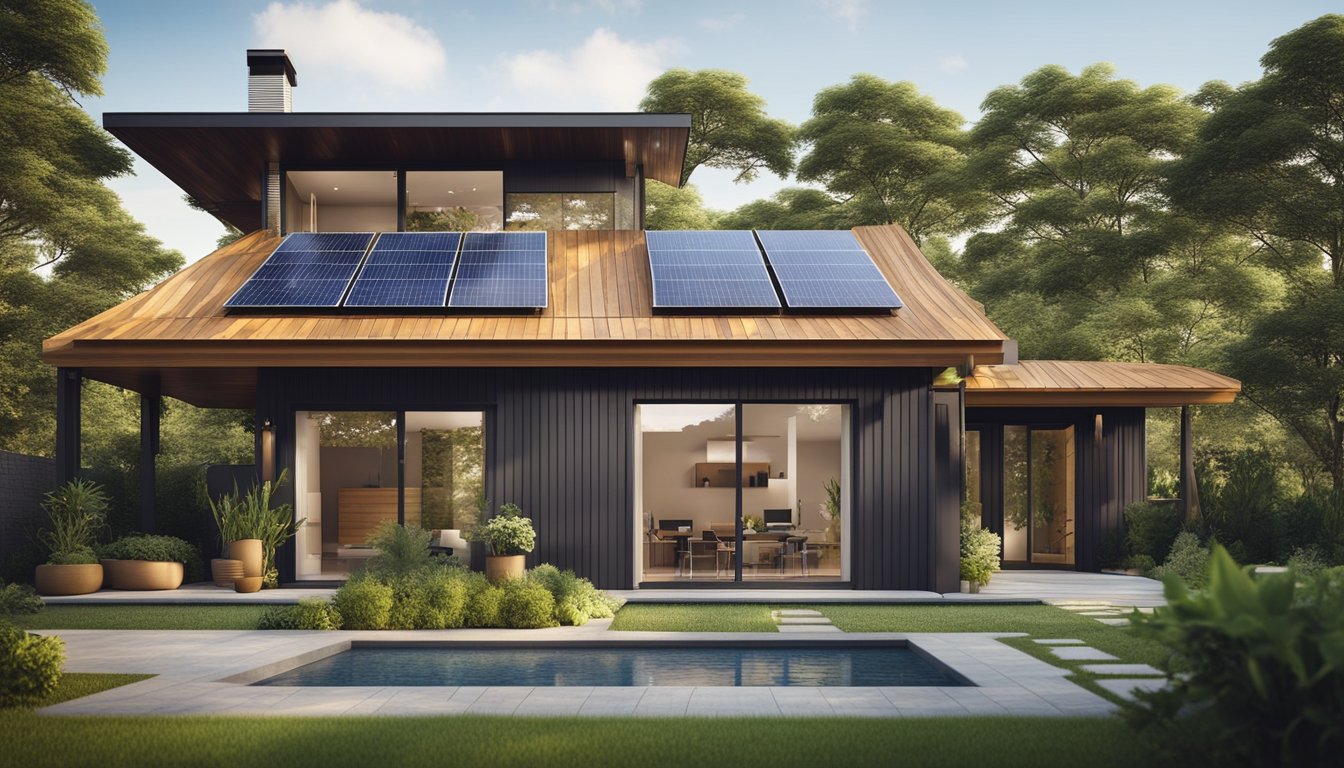Late updated: 18 Jul 2024 11:07
Written by: Daniel Harper
Innovative Eco-Friendly Home Renovation Solutions: Transform Your Living Space
Innovative eco-friendly home renovation solutions are transforming the way we approach our living spaces. Embracing sustainable practices not only benefits the environment but also enhances the comfort and efficiency of our homes. Replacing old windows with energy-efficient alternatives can significantly reduce heating and cooling costs.

In our quest to make homes more sustainable, it's crucial to utilise non-toxic and natural materials. Strategies like integrating solar panels and installing induction stoves, which are 84% energy efficient, align with our commitment to eco-friendly living. These changes might seem small, but they make a considerable difference in our overall energy consumption and carbon footprint.
Furthermore, incorporating rainwater collection systems and planning for waste reduction are essential components of sustainable home renovation. By prioritising these elements, we take meaningful steps towards an environmentally friendly lifestyle. Eco-friendly home improvements not only lower our utility bills but also contribute to a healthier planet for future generations.
Key Takeaways
- Replacing old windows with energy-efficient ones reduces heating and cooling costs.
- Utilising non-toxic, natural materials and solar panels enhances sustainability.
- Rainwater collection and waste reduction are crucial for eco-friendly renovations.
Sustainable Materials and Insulation
In our mission to create eco-friendly homes, selecting sustainable materials and improving insulation are key steps. By integrating both, we enhance our homes' efficiency, reduce energy consumption, and promote environmental stewardship.
Choosing Eco-Friendly Building Materials
When embarking on home renovations, choosing sustainable and natural materials is essential. Bamboo is a top choice due to its rapid growth and minimal environmental impact. Reclaimed wood, salvaged from older buildings, offers unique aesthetics while reducing the demand for new timber, thus preserving forests.
Recycled materials, like reclaimed wood and recycled glass, are vital in reducing waste. They offer durability and character to your home projects. Additionally, using eco paints—which are free from volatile organic compounds (VOCs)—improves indoor air quality and reduces health risks.
Cork, derived from the bark of cork oak trees which naturally regenerate, is another excellent sustainable material. It's renewable, biodegradable, and has excellent insulating properties. Employing these eco-friendly choices not only conserves natural resources but also makes our living spaces healthier.
Innovations in Insulation and Energy Efficiency
Effective insulation is crucial for minimising energy consumption. Natural options like sheep’s wool provide excellent thermal performance and moisture regulation. Hempcrete, made from hemp fibres, lime, and water, not only insulates but also sequesters carbon, contributing to a lower carbon footprint.
Spray foam insulation offers added benefits by reducing air infiltration by up to 50%, making it an efficient choice. Additionally, fibreglass insulation, composed of up to 30% recycled glass, remains a popular and effective option with significant market share.
To further boost energy efficiency, integrating smart thermostats or programmable thermostats can help manage temperature control and reduce energy usage. Upgrading to energy-efficient appliances and incorporating ventilation systems like heat recovery ventilators (HRVs) improve indoor air quality while maintaining temperature control. These innovations collectively enhance the sustainability and comfort of our homes.
Renewable Energy and Water Conservation

Our focus on renewable energy and water conservation utilises solar power and integrates water-saving solutions, emphasising efficiency and sustainability. These methods support eco-friendly home renovation practices, contributing to a sustainable future.
Utilising Solar Power and Renewable Energy
Incorporating solar power in home renovations is one of the most effective ways to adopt a sustainable lifestyle. Solar panels use photovoltaic cells to convert sunlight into electricity, significantly reducing reliance on non-renewable energy sources.
The installation of solar panels can be costly initially, but the long-term benefits include lowered electricity bills and a reduced carbon footprint. Solar energy is a renewable resource, making it a sustainable choice for modern homes.
Additionally, integrating energy-efficient appliances and smart systems can further reduce energy waste. Pairing solar power with battery storage systems ensures that excess energy generated during the day can be stored and used during peak hours. This approach not only enhances energy efficiency but also ensures a reliable power supply even during cloudy days or at night.
Water-Saving Solutions and Sustainable Landscaping
Water conservation is crucial in sustainable home renovation. Implementing low-flow fixtures such as faucets, showerheads, and toilets can significantly reduce water usage without compromising performance.
Rainwater harvesting systems collect and store rainwater for various uses, reducing the demand on municipal water supplies. This harvested water can be used for gardening, flushing toilets, and even household cleaning.
For landscaping, selecting native plants that require less water and maintenance is essential. Native vegetation is adapted to the local climate and encourages biodiversity. Incorporating a green roof provides additional insulation, reduces stormwater runoff, and supports plant growth.
Sustainable gardening practices, including the use of mulch and compost, further enhance water retention and soil health. These methods collectively contribute to effective water management and a sustainable living environment.
Frequently Asked Questions

In our quest for innovative eco-friendly home renovation solutions, we delve into cost reduction strategies, sustainable materials, and the latest trends. We also explore practical steps for enhancing the eco-friendliness of existing homes and ways to design homes that are both economical and sustainable.
How can one reduce the cost of eco-friendly home renovations?
Cost reduction starts with careful planning. Prioritising energy-efficient updates like insulation and low-flow fixtures can yield significant savings. Utilising recycled or repurposed materials, shopping for sales, and taking advantage of government incentives can also help keep expenses down.
What are the most sustainable materials to use in home renovations?
Some of the most sustainable materials include bamboo, reclaimed wood, and recycled metal. Bio-plastic, sustainable fabrics, and non-toxic paint options are also excellent choices. These materials are not only eco-friendly but also offer durability and aesthetic appeal.
What are some current trends in eco-friendly home renovations for 2024?
In 2024, key trends include smart home energy management systems, increased use of solar panels, and rainwater harvesting solutions. Innovations in eco-friendly materials, like recycled and natural composites, are gaining popularity. Additionally, integrating green roofs and living walls into home designs is becoming more mainstream.
How can an existing home be renovated to improve its sustainability?
Improving an existing home's sustainability can start with easy fixes like upgrading to energy-efficient windows and installing programmable thermostats. Further improvements can involve adding insulation, converting to LED lighting, and incorporating renewable energy sources like solar panels.
What are practical measures for homeowners to achieve greater eco-friendliness?
Homeowners can take practical steps such as composting organic waste, using water-saving fixtures, and planting native vegetation to reduce landscaping water use. Choosing eco-friendly cleaning products and reducing single-use plastics at home are also effective measures.
In what ways can a home be designed to be both economical and eco-friendly?
Designing a home that is economical and eco-friendly involves using multi-functional spaces and energy-efficient appliances. Implementing passive solar design techniques, such as placing windows to maximise natural light, and using sustainable building materials can significantly reduce costs and environmental impact.
